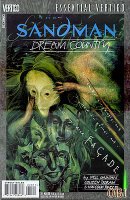It's all too easy, therefore, to forget how frequently good artists throughout the ages have insisted, as Auden put it, that "art makes nothing happen." It's all too easy to jump from the knowledge that the novel can have agency to the conviction that it must have agency. Nabokov pretty well summed up the political platform that every novelist can endorse: no censorship, good universal education, no portraits of heads of state larger than a postage stamp. If we go any further than that, our agendas begin to diverge radically. What emerges as the belief that unifies us is not that a novel can change anything but that it can preserve something. The thing being preserved depends on the writer; it may be as private as "My Interesting Childhood." But as the country grows ever more distracted and mesmerized by mass culture, the stakes rise even for authors whose primary ambition is to land a teaching job. Whether they think about it or not, novelists are preserving a tradition of precise, expressive language; a habit of looking past surfaces into interiors; maybe an understanding of private experience and public context as distinct but interpenetrating; maybe mystery, maybe manners. Above all, they are preserving a community of readers and writers, and the way in which members of this community recognize each other is that nothing in the world seems simple to them.
--- Jonathan Franzen, "Why Bother?" in How To Be Alone
Wednesday, November 30, 2005
Tuesday, November 29, 2005
A nation which ignores and does not encourage its theatre is, if not culturally dead, culturally pitiable; just as the theatre which ignores the drama of its people, and fails to register their trials as well as their triumphs, their tears and their laughter, has little right to call itself a national theatre, but merely as amusement hall, a place for those who attend merely to "kill time".
-- Goh Poh Seng
Tuesday, November 15, 2005
Monday, November 14, 2005
Saturday, November 05, 2005
Lvov: Why have you brought me to this house of reptiles? This is not a place where honest people should be seen.
Anna: Would you mind, Doctor, can I give you a social tip? It's bad manners to take a lady out and keep on about how honest you are. Perhaps it's true but nobody wants to know. I promise you, it's good advice. Don't draw attention to your virtues. Let women discover them for themselves. When Nikolai was your age, then he did nothing but sing songs and tell stories. And there wasn't one woman alive who couldn't sense what a fine man he was.
Lvov: Please. Don't compare me with Nikolai. I know everything about him.
Anna: No. You don't. You're a good man but you know nothing. Let's go into the garden. Nikolai never used to rail against the menagerie. You never heard Nikolai call people reptiles. Or boast about his own superiority. He left people alone to live their own lives. If he spoke at all it was to blame himself for his own impatience, or to express his pity for some poor soul. That's how he was. Forgiving. Not like you...--- Anton Chekov, Ivanov, Act 2 Sc 10. Adapted by David Hare.
Friday, November 04, 2005
In the late 1980s, however, ABC was purchased by Capital Cities, a media conglomerate, which in an attempt to signal the change of ownership demanded that the Rand logo be altered or scrapped. Once again, various designers were called upon to better the original (Rand was not invited to participate), and new versions included such tropes as stylized stars and eagles (to emphasize the American in ABC). But none could equal the simplicity of the existing mark. After the failed attempt at change was over, a bemused Rand commented: 'It was a great mistake, not because it was the greatest logo in the world, but even a bad logo shouldn't be changed except for very good reasons. Because a logo doesn't represent a company. The company represents the logo. If you're a lousy company, your logo is useless, no matter how well designed. If your logo is good, and you're a good company, you have an ideal situation. If the company is bad, it's a bad logo. So the idea of changing a logo without recognizing the importance of the change is stupid.'
--- Steven Heller, Paul Rand
Tuesday, November 01, 2005
If the search for justice can be seen as Tempo's "paraideology", in practical terms this meant that for Tempo journalists, being "balanced" in a system that was inherently unbalanced was not enough. "There was one incident I remember from early on," Goenawan said, "it was when Tempo was in Senen. The law editor reported a story, something very evenhanded. But then the side of the weak was overshadowed, simply because he was weak. And I discovered that being even was not enough. And we had a debate about it, whether we should be so impartial, so even, when the victims are very weak. And we changed the story. We killed that story. And so I think from then on we decided that being even was not enough. Because before the philosophy had been to cover both sides. And we discovered it was not so easy."
--- Janet Steele, Wars Within: The Story of Tempo,
an Independent Magazine in Soeharto?s Indonesia

